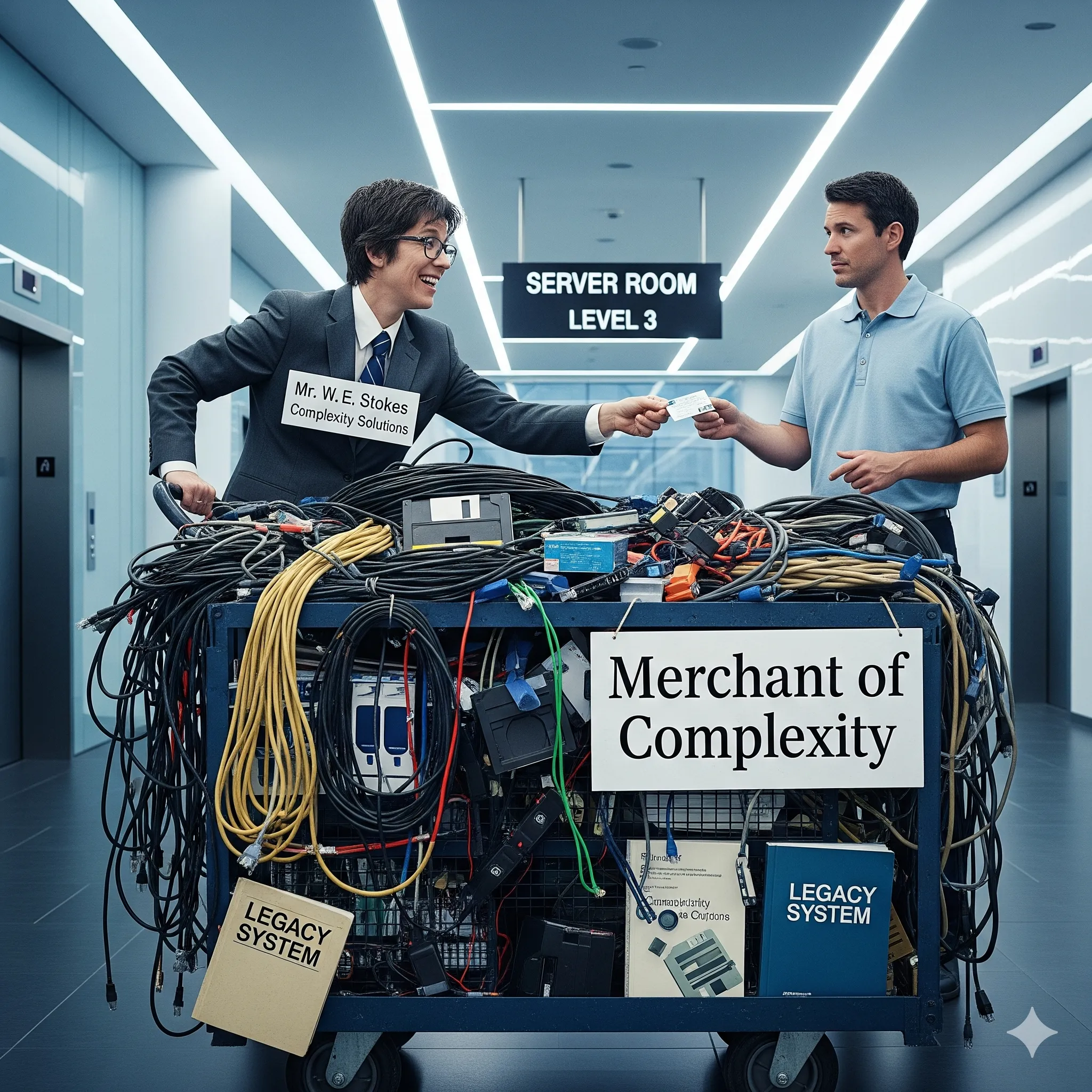Merchant of complexity

When Your Vendor Profits from Your Inefficiency
Section titled “When Your Vendor Profits from Your Inefficiency”Have you ever felt like a vendor is subtly, or not so subtly, making things more complicated than they need to be? You’re not alone. This phenomenon, which I like to call the “Merchant of Complexity,” describes a business model where a vendor’s profitability is directly tied to the inefficiency of your internal processes. It’s a cunning, often insidious, way for them to extract more money from you over time.
How the Merchant of Complexity Operates
Section titled “How the Merchant of Complexity Operates”The core strategy of a Merchant of Complexity is to introduce or maintain layers of intricacy that require their continued, and often expensive, intervention. Here’s how they typically operate:
- Proprietary Systems and Black Boxes: They might offer solutions that are deliberately opaque or built on proprietary technology, making it difficult for your internal team to understand, manage, or modify. This creates a dependency on their experts for even minor adjustments or troubleshooting.
- Perpetual Consulting and Support: Instead of providing a truly intuitive and self-sufficient product, they create a constant need for their consulting services, training, and ongoing support. Each new feature, update, or integration becomes an opportunity for them to bill for their time.
- Fragmented Solutions: Rather than offering a comprehensive, integrated solution, they provide a series of disconnected modules or products. This forces you to spend more time and resources integrating these disparate parts, often with their assistance.
- High Switching Costs: They might make it incredibly difficult to migrate away from their services. This could involve convoluted data export processes, non-standard data formats, or contract clauses that penalize early termination. Once you’re in, you’re stuck.
The Hidden Costs of Complexity
Section titled “The Hidden Costs of Complexity”The immediate financial impact of dealing with a Merchant of Complexity is obvious: higher invoices for services, support, and customizations. However, the true costs run much deeper:
- Decreased Productivity: Your team spends valuable time navigating unnecessarily complex systems, waiting for vendor support, or trying to piece together fragmented information.
- Stifled Innovation: The difficulty in adapting or integrating new technologies can slow down your ability to innovate and respond to market changes.
- Increased Frustration and Morale Issues: Employees become demoralized when faced with constant roadblocks and inefficiencies caused by vendor-imposed complexity.
- Loss of Control: You cede control over your own processes and data, becoming reliant on an external entity whose interests may not align with yours.
Identifying and Combating the Merchant of Complexity
Section titled “Identifying and Combating the Merchant of Complexity”So, how can you spot a Merchant of Complexity and protect your business?
- Question Complexity: If a solution seems overly complicated for the problem it’s solving, challenge it. Ask for simpler alternatives or explanations.
- Demand Transparency: Insist on clear documentation, open APIs, and transparent pricing structures. Avoid “black box” solutions where you don’t understand how things work.
- Prioritize Self-Sufficiency: Look for vendors who empower your team to be self-sufficient through good design, comprehensive training, and accessible resources.
- Evaluate Total Cost of Ownership (TCO): Don’t just look at the initial price tag. Consider the ongoing costs of support, customization, training, and potential inefficiencies.
- Seek Integrated Solutions: Whenever possible, opt for vendors who offer holistic, integrated solutions that minimize the need for complex integrations.
- Read Contracts Carefully: Pay close attention to clauses related to data ownership, migration, and termination. Understand the switching costs before you commit.
Conclusion
Section titled “Conclusion”In today’s fast-paced business environment, efficiency is paramount. Don’t let a Merchant of Complexity hold your business hostage to unnecessary intricacy. By being vigilant and asking the right questions, you can avoid these pitfalls and choose partners who truly contribute to your success, rather than profiting from your struggles.
Are you facing simirar problems? What are your thoughts? I’d love to hear your experiences.